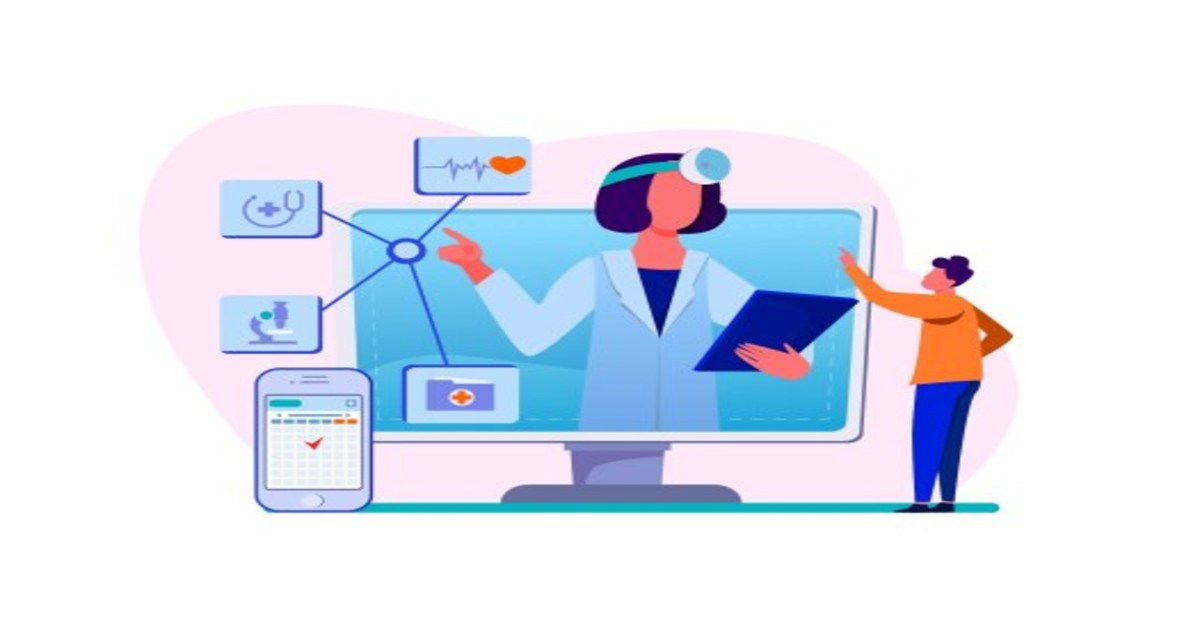
Health Technology, Digital Healthcare
Article | August 16, 2023
COVID-19 has been a catalyst for change, with the diagnostics industry taking centre stage and rising to the challenge of a global pandemic. One of the silver linings of this mammoth task has been the unprecedented time and focus dedicated to finding new technologies and solutions within the sector.
The lessons learned from the pandemic now need to be taken forward to improve breast and cervical cancer detection, prevention and treatment across the UK over the coming years.
In the more immediate term, the diagnostics industry, alongside public health leaders, faces a daunting backlog as screening programmes for breast and cervical cancer were put on pause for months. These two life-saving tests have been some of the most overlooked during the pandemic and getting back on track with screening is critical as we start to turn the corner. We believe innovation in diagnostics, particularly artificial intelligence guided imaging, is a key tool to tackle delays in breast and cervical cancer diagnosis.
The scale of the backlog in missed appointments is vast. In the UK, an estimated 600,000 cervical screening appointments were missed in April and May 2020. And an estimated 986,000 women missed their mammograms, of which an estimated 10,700 could be living with undiagnosed breast cancer. It is clear that hundreds of thousands of women have been affected as COVID-19 resulted in the reprioritisation of healthcare systems and resource allocation.
Both cervical and breast cancer screening are well suited for digital technologies and the application of AI, given both require highly trained medical professionals to identify rare, subtle changes visually –a process that can be tedious, time-consuming and error prone. Artificial intelligence and computer vision are technologies which could help to significantly improve this.
What does AI mean in this context?
Before examining the three specific areas where digitisation and AI can help, it is important to define what we mean by AI. It is the application of AI to medical imaging to help accelerate detection and diagnosis. Digitisation is the vital first step in implementing an AI-driven solution – high quality images demand advanced cloud storage solutions and high resolution. The better the quality of the input, the more effectively trained an AI system will be.
The first area where AI-guided imaging can play a role is workflow prioritisation. AI, along with increased screening units and mammographers, has the potential to increase breast cancer screening capacity, by removing the need for review by two radiologists. When used as part of a screening programme, AI could effectively and efficiently highlight the areas that are of particular interest for the reader, in the case of breast screening, or cytotechnologist when considering cervical screening.
Based on a comparison with the average time taken to read a breast screening image, with AI 13% less time is needed to read mammogram images, improving the efficiency with which images are reviewed. This time saving could mean that radiologists could read more cases a day and potentially clear the backlog more quickly.
For digital cytology for cervical cancer screening, the system is able to evaluate tens of thousands of cells from a single patient in a matter of seconds and present the most relevant diagnostic material to a trained medical professional for the final diagnosis. The job of a cytotechnologist is to build a case based on the cells they see. Utilising these tools, we are finding that cytotechnologists and pathologists are significantly increasing their efficiency without sacrificing accuracy to help alleviate the backlog of cervical screening we are seeing in many countries.
Prioritising the most vulnerable patients
Another key opportunity is applying AI to risk stratification, as it could help to identify women who are particularly at risk and push them further up the queue for regular screening. Conversely, it would also allow the screening interval for those women at lower risk to be extended, creating a more efficient and targeted breast screening programme.
For example, women with dense breast tissue have a greater risk factor than having two immediate family members who have suffered from breast cancer. What’s more, dense breasts make it more difficult to identify cancerous cells in standard mammograms. This means that in some cases cancers will be missed, and in others, women will be unnecessarily recalled for further investigation.
A simple way to ensure that those most at risk of developing breast cancer are prioritised for screening and seen more regularly would be to analyse all women on the waiting list with AI-guided breast density software. This would allow clinicians to retrospectively identify those women most at risk and move them to the top of the waiting list for mammograms.
In the short term, to help tackle the screening backlog, prior mammograms of women on the waiting list could be analysed using the breast density software, so that women at highest risk could be seen first.
Finding new workforce models
Being able to pool resources will allow resource to be matched to demand beyond borders. Globally, more than half a million women are diagnosed with cervical cancer each year and the majority of these occur where there is a lack of guidance to conduct the screening programme. The digital transformation of cervical screening can connect populations that desperately need screening to resources where that expertise exists. For example, developing countries in Africa could collect samples from patients and image these locally, but rely on resources in the UK to support the interpretation of the images and diagnoses. Digital diagnostics brings the promise of a ‘taxi-hailing’ type model to cervical cancer screening – connecting groups with resources (drivers with cars) to those who are in need (passengers): this is an efficient way of connecting laboratory professionals to doctors and patients around the world.
It’s going to take many months to get cancer screening programmes up and running at normal levels again, with continued social distancing measures and additional infection control impacting turnaround times. But diagnostic innovation is on a trajectory that we cannot ignore. It will be key to getting cancer screening programmes get back on track. AI is a fundamental piece of the innovation puzzle and we are proud to be at the forefront of AI solutions for our customers and partners.
Read More

Health Technology, Digital Healthcare
Article | August 21, 2023
With consumers’ share of healthcare costs expanding, we need to do a better job making charges more transparent and more predictable
My husband recently stubbed his toe. Badly. Badly enough that I encouraged him to go see a doctor. He was reluctant. While I suspected he’d rather just garner sympathy by complaining to me while limping around the house (just kidding, honey), his stated reason was all too familiar: “I have no idea what we’ll have to pay. They’ll want to do anX-ray,it might need surgery, and I have no idea what it’ll cost.” All true. We have good health insurance; but like most Americans, when we go to the doctor or have a procedure, what we will actuallyhave topay out of pocket remains a mystery.This is something that we can and should change.
As consumers we are shouldering more and more of the cost of healthcare. And the biggest increases are for those of us with employer-sponsored plans. According to an analysis of federal data by the Commonwealth Fund,deductibles in employer plans more than doubled between 2008 and 2017, from $869 to $1,808. Especially troubling, an accompanyingCommonwealth Fund survey revealed that only 62% of adults were very or somewhat confident in their ability to afford healthcare.
This increasing burden is also evident when you look at the crushing levels of medical debt in the United States. According to a new studyby JAMA, medical debt is now the largest contributor to personal debt. And the data for this study was collectedbeforethe COVID-19 pandemic.
Some of this debt is driven by unpredictability—if the heart procedure you needed costs several thousand dollars more out of pocketthan you thought it would, you may not be prepared, emotionally or financially, to pay it. This is a bad outcome, obviously. The risk of nonpayment rises for the provider; and a recuperating patient is burdened with the stress of a large,unexpected bill.
More skin in the game
Soas consumers are paying more out of pocket, some may become reluctant to seek care (like my husband) or seek more information about what they willhaveto pay for the care they receive. Consumers are also armed with incredible levels of price transparency with other products—everything from hotel rooms to clothing to household items. With so much skin in the game, and the internet providing so much information, consumers’ expectations are changing when it comes to healthcare.
State and federal regulators are also beginning to take action, a trend that will likely accelerate. Most hospitals are now required to publicly disclose the prices they charge. This does not, however, solve the issue for consumers. While it provides a measure of visibility into pricing for insurance companies, Medicare, and Medicaid, it doesn’t show what share the patient will ultimately pay.
Making the complicated simple
The complexity of pricing in healthcare is well documented. Niall Brennan, CEO of the Health Care Cost Institute, a nonprofit that analyzes medical costs, suggests that healthcare costs are too high.As a recent Wall Street Journal article reported, a price of a C-section varied from $6,241 to$60,584 at one hospital. This all has to do with the vagaries of the agreements that hospitals sign with multiple insurance companies and government payers. In turn, each insurance company will have its own deductible and out-of-pocket schedules, which providers don’t have access to.
We are seeking to change this at Change Healthcare. We are piloting our Care Cost Estimator with a few innovative providers. With the Care Cost Estimator, weleverage our unique dataset, and the largest eligibility network in the industry, to make the unpredictable, predictable.Because we’ve managed 15 billion healthcare transactions—and our network covers 1 million physicians, 6,000 hospitals, and 2,400 payers—we have an unmatched ability to analyze what real-world patients are paying for practically any procedure, performed at almost any hospital or clinic.
With a cloud-based transaction engine, providers will now be able to tell their patients how much they will have to pay out of pocket for a given procedure.And this analysis takes place in real time.
Removing unpredictability in pricing
This gives providers the opportunity to offer added value for their patients, taking some unpredictability out of whatis often a stressful transaction. In addition, it accelerates patient payment cycles which, as the patient’s share of the cost burden increases, is becoming more and more important. We’re not talking $50 co-pays anymore; it’s thousands of dollars per transaction. If necessary, providers can also help the patient plan for the expense, offering financing options, thus reducing unpaid bills. For the patient, it allows more informed decision-making and peace of mind.
Testing the beta version of our Care Cost Estimator with our partners will allow us to receive real-world feedback and collaborate with customers on how to continuously improve the product as we scale it. We expect the ROI for providers, in addition to the payment-cycle improvements, will include greater patient satisfaction and loyalty. For the patient, it provides information necessary to help make proper decisions and plan emotionally and financially; in other words, giving the consumer the same information for vital healthcare transactions that’s available to them for practically any other purchase.
This kind of win-win solution is at the core of Change Healthcare’s mission to improve the healthcare experience for everyone—including my husband and his broken toe!
Read More

Health Technology, Digital Healthcare
Article | September 8, 2023
Virtual reality (VR), the new technological advancement, is set to transform practices in the healthcare industry. According to Statista, it is estimated that, by 2022, the second largest market share of VR will be from the healthcare industry. Virtual reality in healthcare operates in various divisions to offer a greater quality of patient care and performance of medical professionals. For the health and healthcare industry, from the clinical process to the user, VR has a multitude of applications such as tutoring future doctors, generating new life-saving routines, etc.
Virtual reality in healthcare can confront the challenges in the industry, including efficiently handling huge healthcare databases, training and development of medical professionals, patient engagement, disease awareness, medical marketing, patient treatment, etc. Virtual reality in the healthcare market, according to a report from Reports and Data, is expected to reach USD 8.03 billion by 2027 from USD 2.06 billion in 2019.
This article discusses how virtual reality in healthcare is going to transform the industry by applying it in various divisions such as medical training, patient treatment, patient engagement, disease awareness, and medical marketing.
Virtual Reality in Healthcare Training
VR in healthcare can transport you to areas, inside of the human body, that otherwise would be impossible to access and view. Medical students currently use cadavers to learn, but cadavers do not react the same way live patients do. Also, cadavers are very difficult to get hold of. When VR is used in healthcare training, students can view even minute detail of all parts of the body. This view is possible in stunning 360° CGI reconstruction and creates training scenarios, which would replicate real surgical procedures.
Virtual Reality in healthcare can be used to deliver high-quality surgical training. Using virtual reality, 4K 360° video of real-life surgery is filmed from multiple angles. Then it is combined with CGI models of the anatomy, which is being operated. This advanced use of virtual reality in healthcare provides medical students with an interactive and immersive training experience.
Treatment
Patient Education
The ability of virtual reality in healthcare to see inside of the human body is useful for both doctors and patients. With the help of VR, doctors can take patients through their surgical plan. This is made possible by a virtual view of the anatomy and pathology of patients through a patient-specific 360° VR reconstruction. The result of this is an enhanced understanding of the treatment for patients and higher patient satisfaction.
Robotic Surgery
Robotic surgery is a recent innovation. A robotic device, such as a robotic arm, is used in a robotic surgery while being controlled by a human surgeon. This utilization of virtual reality in healthcare makes sure of fewer or no risk of complications in surgeries. This also makes the surgeon finish the surgery procedure faster with greater accuracy. The robotic devices are accurate with reduced blood loss, smaller incisions, and faster recovery.
Mental Health and Psychological Therapy
The unique ability of virtual reality technology to take you anywhere virtually can be utilized to create a powerful virtual reality simulation in healthcare of various scenarios in which psychological issues occur. This eliminates the necessity of a therapist accompanying patients to various scenarios such as a tall building or a crowded shopping center to provide proper counseling. These scenarios can be easily created with virtual reality technology in healthcare. Virtual reality in healthcare market has also been used to help autistic children in the classroom, curb memory loss, and gather data for dementia research.
Pain Management and Physical Therapy
Apart from psychological issues, the healing capabilities of VR are also used in pain management and physical treatment. According to a study by the UW Harborview Burn Centre and the University of Washington Seattle, a full VR immersion acted as a distraction for patients, who were undergoing physical therapy after a skin graft. This distraction subsequently reduced their feeling of pain.
Virtual reality in healthcare is also found to be effective in reducing recovery time in physical therapy. Patients performing their daily exercises in a virtual environment, find the task to be more fun than usual. It also keeps the patients focused and helps them keep their spirits up and recover sooner.
Patient Engagement
With the help of virtual reality in healthcare, patients can experience a virtual tour of the inside of their bodies before surgeries. This is a 360-degree, three-dimensional (3D) tour. This enables patients to know their body, anatomy, and pathology, before the surgical procedures. Virtual Reality Medical Visualization platform is developed for the tour.
These advancements with virtual reality in healthcare engage patients thoroughly, which reduces tension and lead to a speedy recovery.
Medical Marketing
The most popular and initial application of Virtual reality was marketing. Still, it continues to be one of the most effective and powerful marketing tools. The ability to use VR to project the future of healthcare is the most powerful tactic in healthcare marketing. With Virtual reality in healthcare, one of the most powerful tactics that you can have to market in the industry is to show people what changes they can expect when they start or stop exercising, lose or gain weight, the progress they make through cancer treatments, etc.
As the possibilities of virtual reality in healthcare are endless, healthcare professionals and providers can attract more patients, doctors with high caliber, and nursing staff to your facilities. When those are in short supply, virtual reality in healthcare can be used as an excellent healthcare marketing tool to ensure expected results.
Disease Awareness
AbbVie, a pharmaceutical research & development company, created an experience to educate medical professionals and raise awareness among them regarding the daily struggle Parkinson’s disease patients undergo. The experience was demonstrated at a pharmaceutical industry trade show. People put on a headset and experienced how Parkinson’s sufferers navigate a virtual supermarket, meeting with difficult moments when they come in contact with other people.
Such experiences with virtual reality in healthcare help raise awareness for various diseases among professionals and patients. Virtual reality presentations can be conducted to raise awareness of certain diseases.
The Future of Virtual Reality in Healthcare
A lot of applications of virtual reality in healthcare are in their nascent stage. In the coming years, virtual reality will be used more in healthcare, which will improve the effectiveness and accuracy of present procedures. It will also enhance the various human capabilities, for both patients and medical professionals. Virtual reality in healthcare has huge potential, but only limited by the ingenuity and creativity of people who create and apply the technology. VR will surely transform medical training, physical and psychological therapies, rehabilitation, mental health treatments, and patient engagement, among others.
Virtual reality in healthcare holds the power to transform the way doctors are trained and treatment is provided to patients. According to reports from various market research companies, especially research done by Grand View Research, predict that, by 2025, virtual reality in the healthcare market will grow to a whopping US$5.1 billion. The major driving forces behind this growth are Rapid technological advancements in the healthcare industry and driving demand for rehabilitation and simulation training.
Frequently asked questions
How is virtual reality used in healthcare?
In healthcare, virtual reality is used in treatment, training, and to raise awareness among medical professionals and patients regarding various diseases. Patients and doctors are made to view the inside of the human body using virtual reality.
Where is virtual reality used in healthcare?
Virtual reality is used in various sectors of healthcare to deliver high quality patient care. Treatment with the assistance of virtual reality also increases the efficiency of medical professionals. Virtual treating is applied in all aspects of medical treatment.
What are the benefits of virtual reality?
Virtual reality in healthcare saves both, the time and money of healthcare providers. It also makes the work of medical professionals more convenient. It eliminates unnecessary travel for treatments by making appropriate decisions.
How virtual reality is changing healthcare?
Virtual reality is changing the healthcare by providing different advanced ways of treatments, especially for physical and psychological therapy, surgeries, pain management, and stress management and by assisting the rehabilitation process effectively.
Read More

Article | April 13, 2020
Before we discuss the importance of telehealth and how it is changing the nursing industry in general, it is important to understand what telehealth is all about. With the advent of new-age technologies and their impact on the fast-paced, growing population, medical health is an essential department that requires special attention. One’s health is of utmost importance, and to enhance the medical facilities, we as responsible citizens and experts in this particular field must come up with novel and quick solutions to provide optimum precaution and cure. Hence, one of such technological achievements is telecommunication,s and by utilizing such a useful resource, health-related services too can be offered. Telehealth promotes the distribution of various services related to medical health through electronic devices and telecommunication technologies. What can one possibly do if he or she lives in a different country and is pushed to an emergency situation where he requires medical advice from a physician who lives in another corner of the world? Of course, through telecommunication devices, the whole process of exchanging information becomes smoother and easier. Several health-related services such as medical advice, medical care, monitoring, education, remote admissions, and intervention can be extended to a long-distance patient with the help of telehealth facilities. Hence, the contemporary picture of health and medicine has been radically improved with the introduction of these electronic telecommunication systems.
Read More